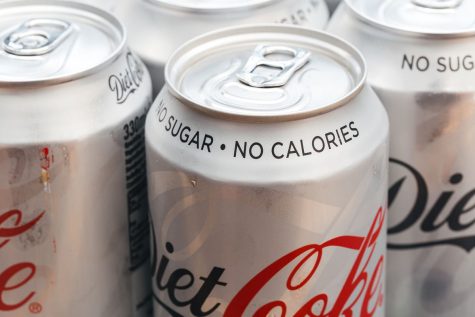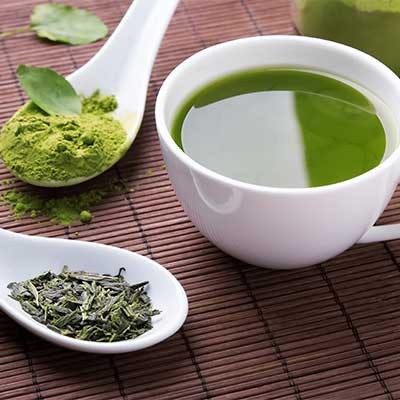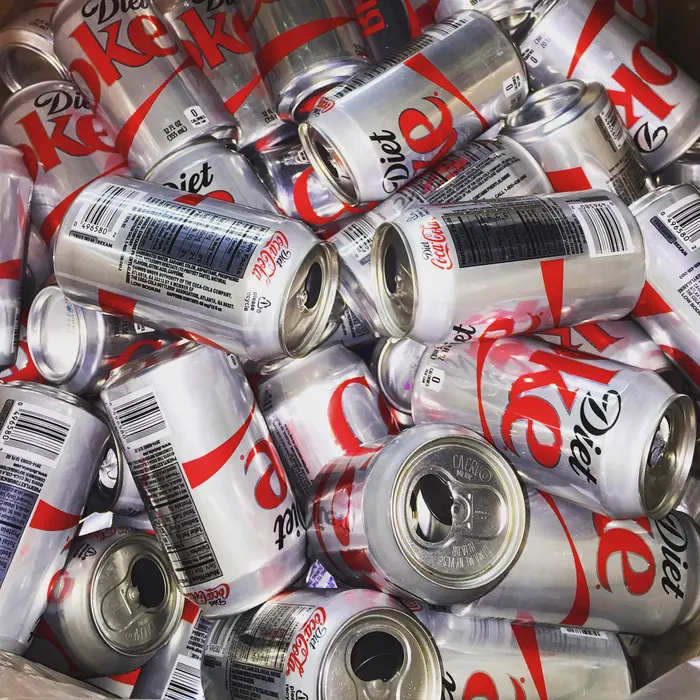Diet Soda: Good or Bad?
December 15, 2022
Diet Coke, Coke Zero, Diet Pepsi, Diet Dr. Pepper… Almost every soda on the market has a “diet” version that people resort to as a healthier alternative to sugar-sweetened beverages. Free of calories, sugar, and carbs, diet soda seems to be a delicious substitute without having to worry about the consequences of calorie intake. These bubbly beverages may seem like a harmless alternative, but are they really?

The answer lies within the ingredients pulled right off the bottle; for example, Diet Coke includes carbonated water, caramel color, aspartame, phosphoric acid, potassium citrate, natural flavors, citric acid, and caffeine. What truly makes up these ingredients?
Caramel Color
“Caramel color is made by a process involving the heating of corn or cane sugar and other carbohydrates to achieve the desired color.” — Coca-Cola Co.
Caramel coloring contains a cancerous chemical called 4-methylimidazole. In 2007, a federal government study concluded that 4-MeI caused cancer in mice and the International Agency for Research on Cancer determined the chemical to be “possibly carcinogenic to humans” in 2011. It was discovered that 29 micrograms of 4-Mel pose a 100,000 risk of cancer (The California Office of Environmental Health Hazard Assessment.) It is possible to get more than 29 micrograms of 4-Mel per day by drinking these sodas, which is a major health risk.
Aspartame
“Aspartame is a low-calorie sweetener made primarily of two amino acids: aspartic acid and phenylalanine. Aspartame has been shown to be safe for everyone, including children and pregnant women. When used in foods and beverages a warning on the labels is provided to people who can’t metabolize aspartame.” — Coca-Cola Co.
This low-calorie sweetener holds several conflicting studies, as it is more carcinogenic to animals than humans, yet there is still enough risk to cut back on drinking diet soda. This no-sugar, no-calorie, no-carb alternative may even conflict with its essential purpose as well, “Some studies suggest that when our taste buds sense sweetness, the body expects a calorie load to accompany it. When that doesn’t happen, it may cause us to overeat because we crave the energy rush our body was expecting,” says Cheryl Forberg R.D., author of Flavor First. To add to that, artificial sweeteners may also dull a consumer’s taste buds, causing them to crave more high-flavor and high-calorie foods (Forberg.) So instead of aiding to keep a healthy weight, it may cause more weight gain due to its effects and unnatural chemicals.
Phosphoric Acid
“Phosphoric acid is used in certain soft drinks, including Coca-Cola, to add tartness to the beverage. Phosphoric acid contains phosphorus, one of the basic elements of nature and an essential nutrient. Phosphorus is a major component of bones.” — Coca-Cola Co.
The acid in this ingredient is what erodes tooth enamel, Caspero says, and contains more health risks along with that; for example, drinking two or more Cokes (Diet and Regular) a day can cause kidney disease. Phosphoric acid can lead to kidney stones, and when left untreated, may result in chronic kidney disease, according to a study in the journal Epidemiology.
Natural Flavors
“Natural flavors are derived from the essential oils or extracts of spices, fruits, vegetables and herbs.” — Coca-Cola Co
The term natural essentially means that they are found in foods obtained from nature, but it does not mean it comes from a healthy food. “Hundreds of chemicals can be used to mimic the taste of natural flavors—so natural flavors can be anything,” says Caspero.
That being said, diet soda is not even close to being a harmless alternative, it could even turn out to be dangerous if abused, much like many other foods and drinks, yet consumers see “diet” on the label and find no problem with exploiting this beverage, ignoring the unnatural chemicals contained in the drink.
What Does Diet Soda Do to Your Body?
As found within the unnatural ingredients of diet soda, the effects of this beverage only negatively affect your body, especially if consumption is abused with more than one soda a day.
For example, drinking diet coke may disrupt your gut health. Research shows that it negatively affects your gut microbiome, which is significant to heart health, nutrient absorption, and immune function. One small study including 7 people found that the artificial sweetener saccharin impaired blood sugar management and caused imbalances in gut bacteria among 57% of participants.
One major effect of diet soda is that it puts one at a higher risk of developing heart problems- One study in 59,614 women showed that drinking at least 2 diet drinks per day was associated with a higher risk of heart problems and dying from heart disease over a 9-year period. It also increases the risk of stroke and type 2 diabetes.
Digesting too much diet soda a day increases migraines, headaches, and irritability as well due to caffeine and aspartame. One study in 115 children found that eliminating certain trigger foods from the diet — such as aspartame and caffeine — improved headaches in approximately 87% of participants
Diet soda also decreases bone density due to Phosphoric acid, increasing the risk of osteoporosis and bone fractures, but only if consumed in large amounts.
To counter the bane of its existence, diet coke causes weight gain due to its association with sugar cravings. Artificial sweeteners affect the brain differently than sugar, leading to increased hunger and food intake, as explained in the Asparmente section. Although some studies find that it may, in contrast, lead to weight loss as well, but much more research is needed to relate body weight and diet soda.

What Happens When You Quit?
Consumers of diet soda may know that the effects of this bubbly beverage are damaging, yet there is nothing that will convince them to stop. Here are a few reasons that might encourage consumers to remove diet soda from their daily life:
Your mind seems sharper and migraines go away- “The chemicals found in artificial sweetener alter the brain chemicals, the brain’s reward system, and nerve signals. According to a review in the European Journal of Clinical Nutrition, these chemical alterations lead to headaches, anxiety and insomnia. An animal study on rats found that drinking diet soda also damaged cells and nerve endings in the brain that are responsible for motor skills.”
Food tastes better– “The artificial sweeteners in diet soda give your taste buds an overwhelming amount of sweetness each time you drink one. Aspartame is 200 times sweeter than table sugar, and Splenda is 600 times sweeter. Brain scans have shown that these sweeteners confuse the sweet receptors in the brain actually prolonging your sugar cravings.”
It will help with weight loss as well, “A piggyback study found that having a daily diet soda increases your chance of obesity by 65% during the next 10 years.”
Other positive impacts of cutting down this habit are that your kidneys will function better, your bones will become stronger, and your risk of diabetes and fat storage will decrease.
Diet soda is not a healthy alternative, especially when it is being abused, break the habit with these few simple tips.
How to Break the Habit
-If you drink a large amount a day, cut down one soda each day. Eliminating it one by one will make it easier for you to discard it from your daily life.
-Think about what you particularly like about the soda; is it the caffeine, the sweetness, the carbonation? Begin by replacing it with healthier options to substitute it. For example, green tea, matcha, kombucha, and seltzer are healthier options.
-Remove diet soda from your home. It may be tempting when passing by diet soda while shopping, but do not buy it because its too easy to grab a soda can from your fridge and begin your unhealthy habits once again.
-Order water at restaurants, it saves money and is way healthier!
-Drink more water than the soda you will consume, see if it will decrease the amount of beverage you will drink. Always have more water than any soda in generally.

(Image of Green Tea, a healthier option)
The Bottom Line
Although diet soda is a no calorie, no sugar alternative, it is no better to have four cans of diet soda than four cans regular soda, as it contains unnatural and rather questionable chemicals, artificial sweeteners, additives, and preservatives that do nothing for you but damage your body. Look beneath the label of a “diet” beverage, and find out what you are really consuming instead of focusing on the calorie or sugar intake. Do not abuse the soda because it is a “diet” soda, treat it as any other sugary drink or food, control the amount you consume, and do not harm yourself because you wanted to ignore the negative aspects of drinking this beverage; because at the end of the day, it is just as harmful as any other unhealthy foods or drinks.









